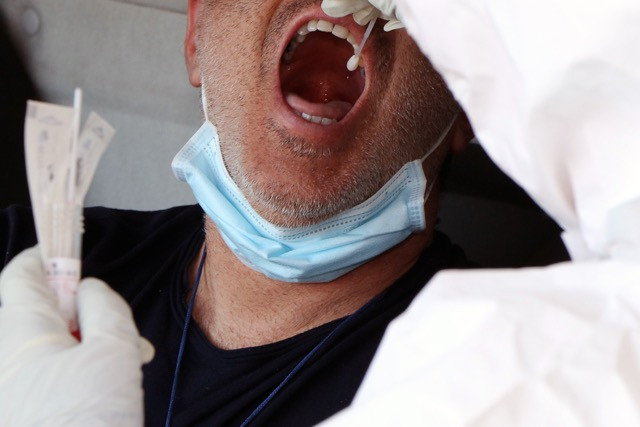Residents of the grand duchy will receive invitations to take a PCR test for covid-19 in the next few weeks. Health minister Paulette Lenert (LSAP) and education minister Claude Meisch (DP) appealed for as many people as possible to take the voluntary tests. They said at a press conference on Friday afternoon that the test would not only provide vital information for the person being tested, but was also part of “collective responsibility” as part of the government’s strategy to contain the coronavirus as much as possible.
Paul Wilmes from the Covid-19 Research Luxembourg taskforce explained that invitations to be tested would be sent out by mail in three phases. The first phase, starting 25 May, will include those working in personal care services such as hairdressers, as well as childcare workers, and then those in the construction sector (who were among the first to return to work in the first phase of deconfinement).
On 1 June, those working in care homes, police and prison officers, pharmacists and primary school children will be among those receiving invitations. The remainder of the population will be called upon in a third phase.
Volunteers can register for a test online. The government is in the process of setting up 27 drive-through testing centres in Neudorf, Niederanven, Ersange, Frisange, Dippach, Steinfort Windhof, Steinfort P&R, Machtum, Junglinster, Schieren, Schinkert, Luxembourg-Bouillon, Kirchberg, Howald, Bascharage, Belval and Esch-Alzette. Additiional walk and bike-through locations will be in Belval and Kirchberg and at the Rotondes.
The test will be conducted via an oropharyngeal swab of the throat. Test results will be sent out within two days. Anyone testing positive will have to self-isolate and the authorities will carry out contact tracing of anyone who might have been in contact with the infected person. Tests will be repeated every week or every two weeks, depending on the risk of
“We need to cast the net as wide as possible,” said Wilmes. The aim is to find as many people who test positive but who have shown no symptoms of covid-19. “It is an early warning system.” Wilmes explained that capacity would allow for 20,000 tests a day.
